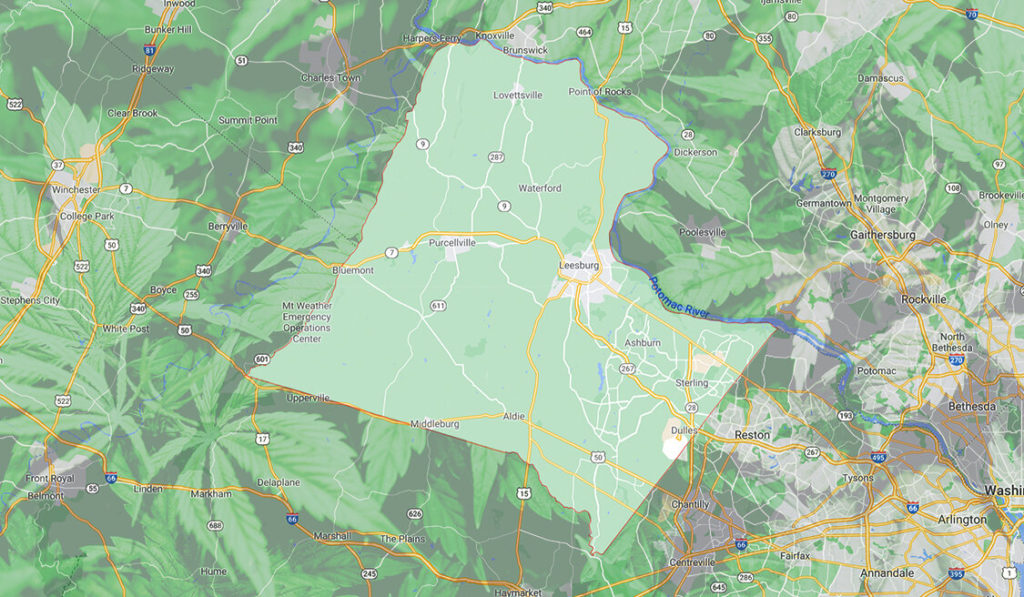Last week, The Outlaw Report noted the ongoing effort in King George County, Virginia to figure out how they can prevent the cannabis legalization that was approved statewide—and begins in July 2021—from happening in their majority white, 188-square mile jurisdiction.
“I saw first-hand the effects drug abuse can have on individuals as well as the community,” Annie Cupka, the chair of the King George Board of Supervisors said. “Be this through impaired driving, increase in crime rates and a negative impact on our youth and education. I think it will burden our Sheriff’s Office and negatively impact our community as a whole.”
This was in response to Virginia approving cannabis legalization and pushing the legalization date up to July 2021. By 2024, recreational cannabis sales will be allowed. But Cupka’s comments are evidence that decades of the war on drugs messaging are not going anywhere and that the stigma surrounding cannabis use can still be wielded to oppose cannabis reform.
Around the same time that King George County officials were scheming to keep cannabis illegal somehow, Loudoun County, Virginia officials were opposing cannabis reform and even rejecting the potential tax revenue generated by cannabis as justification for supporting legalization.
Loudoun County Chair-At Large Phyllis J. Randall, a Democrat, said during a May 4 Loudoun County Board of Supervisors meeting that “tax money” is the “one reason and one reason only” for legalizing cannabis. She also claimed that cannabis is “addictive” and said that someone who smokes cannabis can be under its influence for “days” after smoking.
Supervisor Michael Turner, also a Democrat, argued that legalization is imminent and it would be unwise for Loudoun County to leave themselves out of it. Turner also asked how much revenue Loudoun County would stand to make if they allowed legalization and how much it could possibly lose by legalizing cannabis but there was no data available.
“The reason I bring [tax revenue numbers] up is because we can debate whether or not this is going to become legal in Loudoun County and whether or not we move forward with this but I think the handwriting is on the wall,” Turner said. “I think it would be shame if the dye has been cast at a state-level and Loudoun County decided unilaterally not to take advantage of it.”
Later, Turner also mentioned localized cigarette tax revenue in Loudoun County which this same board of supervisors unanimously approved. Turner also said that he lost a nephew “in large part to his addiction to marijuana,” and not his personal opposition to legalization.
“This is a touchy subject for me. I completely agree with the chair’s fears about legalizing marijuana, I’m absolutely opposed to it, I don’t think we should’ve done it, I think it’s an idiotic law, however it’s been done,” Turner said. “And the equivalent argument about addictive substances is if we suddenly outlawed the sale of cigarettes in Loudoun County, and all someone had to do is drive 15 or 20 minutes [to another county] to buy their cigarettes. And all of that cigarette revenue would go somewhere else. The decision has been made.”
Both Randall and Turner’s claims are not only inaccurate, they ignore the rhetoric surrounding cannabis reform and legalization in Virginia which has primarily focused on legalization as a racial equity issue—with increased tax revenue being a sort of added bonus to righting decades of the racist drug war’s wrongs.
As the ACLU reported last year, Black people are 3.4 times more likely to be arrested for cannabis than white people, and 52% of drug arrests in the state are for cannabis possession. The 2020 ACLU report, “A Tale of Two Countries,” notes that Loudoun County is one of Virginia’s many counties in which a Black person is more than 3.6 times more likely to be arrested for cannabis than a white person (ACLU found that the average racial disparity nationwide is 3.6). Loudoun County is around 68% white and a little over 7% Black.

